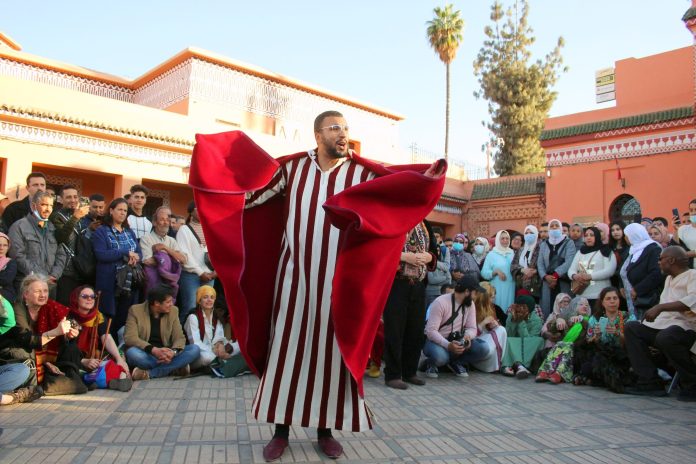Morocco’s film industry is experiencing a vibrant renaissance, moving beyond its traditional role as a picturesque backdrop for international productions. A new wave of local talent is emerging, bringing authentic Moroccan narratives to the forefront and captivating audiences worldwide. This shift highlights a burgeoning Moroccan film industry that is increasingly focused on telling its own stories.
Beyond the Scenery: A Shift Towards Authentic Narratives
For decades, Morocco has been a favored location for Hollywood blockbusters and European cinema, providing stunning desert landscapes and vibrant cityscapes. While international productions continue to thrive, generating a record 1.5 billion dirhams in 2024 from foreign film investment, there’s a significant and exciting pivot happening internally. The Moroccan film industry is now prioritizing its own unique voice. In 2023, Morocco produced an unprecedented 34 feature films, the highest number in its history, showcasing a growing confidence in local narratives. Films like Adam by Maryam Touzani, Much Loved by Nabil Ayouch, and Mimosas by Oliver Laxe (a Spanish-Moroccan co-production that won the Critics’ Week Grand Prize at Cannes) are just a few examples of the powerful and diverse stories emerging from the region. These films offer a glimpse into the complexities of Moroccan society, from family dynamics to social issues, contributing significantly to the landscape of African storytelling.
Nurturing Talent: Education, Festivals, and Funding
This growth is underpinned by a robust support system for local film talent. Institutions like the Superior School of Visual Arts of Marrakech (ESAVM) and the Higher Institute of Audiovisual and Film Professions (ISMAC) in Rabat are nurturing the next generation of filmmakers, actors, and technicians. Film festivals play a crucial role, with the Marrakech International Film Festival (MIFF) standing out as a premier event that connects Moroccan cinema with global audiences and fosters critical exchange. The festival has been instrumental in promoting local films and talent, as well as introducing an international competition for short films and a program supporting low-budget Moroccan cinema. Furthermore, the Moroccan Centre for Cinematography (CCM) offers significant financial support. In 2023, the Digitalization, Renovation, and Creation Fund allocated 28.5 million dirhams for cinema projects, demonstrating a strong commitment to strengthening the Moroccan film industry. The government also offers a 30% cash rebate for eligible local expenditures for foreign productions, further stimulating the overall ecosystem.
Global Recognition and Future Outlook
Moroccan films are increasingly gaining international recognition, participating in and winning awards at prestigious global festivals. This global visibility is not only a testament to the quality of Moroccan cinema but also helps to attract further investment and collaboration. The success of Moroccan comedies, for instance, which outperformed major Hollywood blockbusters at the local box office in 2023, underscores the growing appetite for homegrown content.
As the Moroccan film industry continues to expand its reach and refine its storytelling, it is solidifying its position as a vibrant hub for African storytelling, contributing unique perspectives and enriching the global cinematic landscape.




